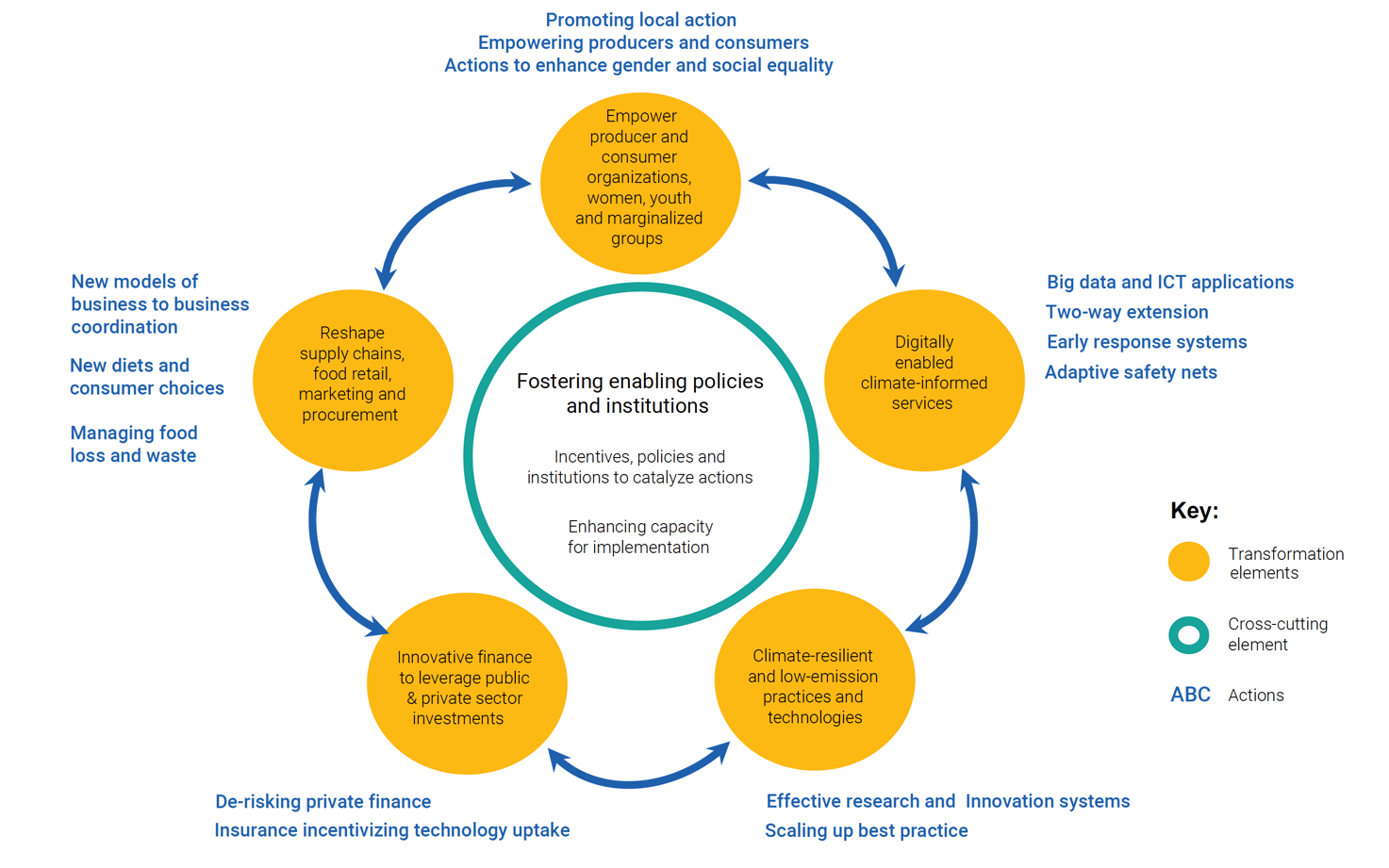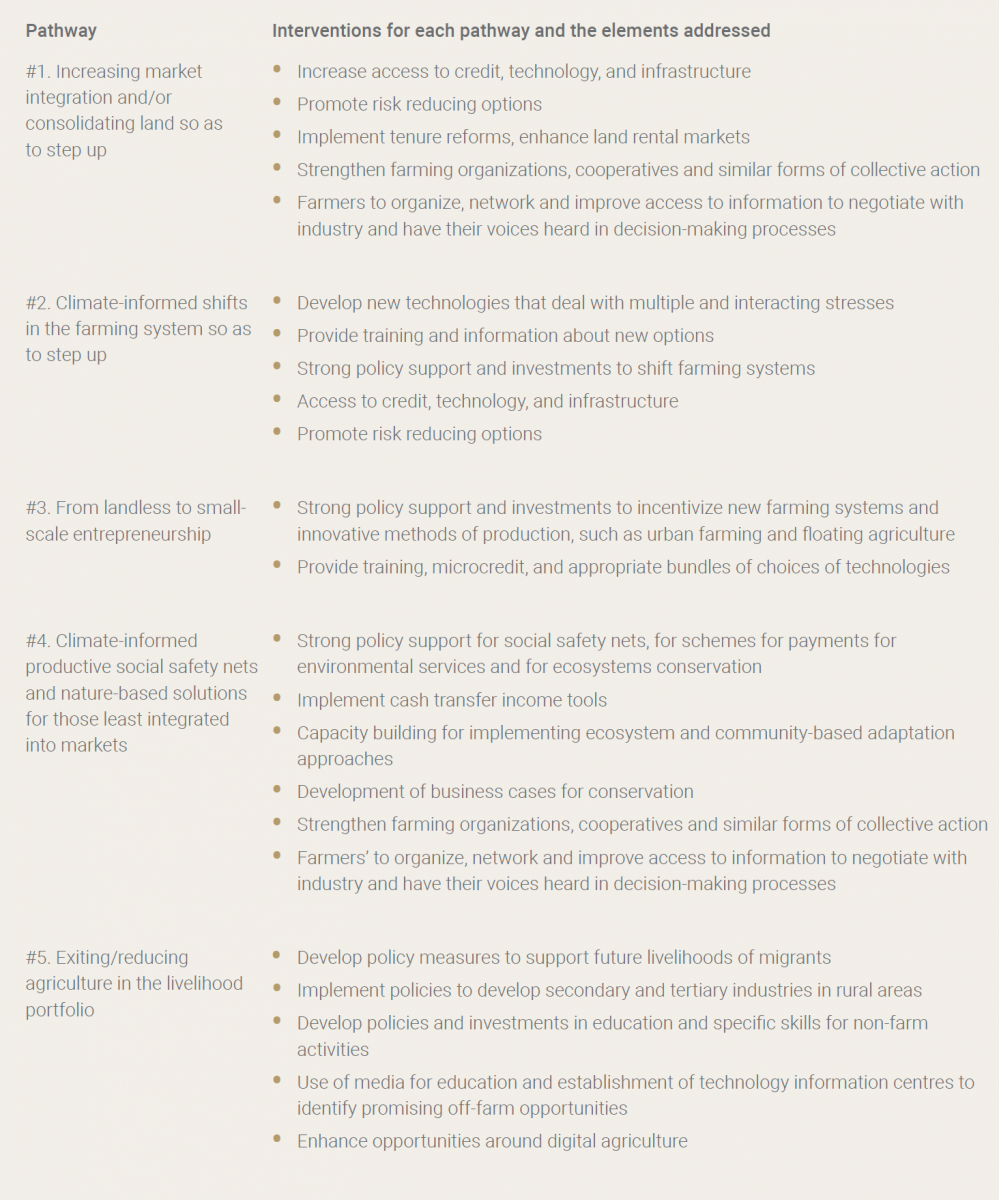Fostering rural transformation under climate change: Suggestions for the Global Commission on Adaptation
Without transformational changes in the food system, we have very little chance of meeting the SDGs by 2030.
WAGENINGEN, THE NETHERLANDS – The people least responsible for greenhouse gas emissions, which drive climate change, are the most affected by the negative impacts of a changing climate. Simple justice and equity considerations dictate a massive, concerted response on behalf of the hundreds of millions of small-scale farmers who are most vulnerable.
To help these farmers, a new background paper led by the CGIAR Research Program on Climate Change, Agriculture and Food Security (CCAFS) for the Global Commission on Adaptation (GCA) investigated what changes are needed if small-scale farmers in rural areas in low- and middle-income countries are to adapt to climate change and increase their resilience.
The study highlights that interventions for food systems need to be scaled up, supported by significantly increased investment in the policy and institutional contexts of rural small-scale farmers; agricultural supply chains need to be reconfigured; digital agriculture needs to be embraced; and the private sector needs to be involved (Figure 1).

It is important to recognize that there are a wide range of farmers, and different types of farmers will have different pathways to increased adaptation and resilience. Different geographies will also call for different solutions. Thus, we have to recognize differentiated pathways to adaptation (see Figure 2) – tailored to different sectors of the population often with multiple pathways in the same geography.
Such transformation will have huge implications for rural populations; managing these implications in the pursuit of desired development outcomes will require a range of elements to be operating in synergy, with less or more emphasis on particular elements depending on context. This is needed to prevent improvements in one are from negatively impacting another area. For example, some of the new phone-based ICTs in agriculture may need to be implemented in such a way so as not to marginalise groups of small-scale farmers who may not have access to a phone or mobile network.
The intention is for the proposed framework for adaptation to guide agricultural stakeholders to take action on building resilient and food- and nutritionally-secure rural livelihoods. Encouragingly, key messages from the paper are already echoed in the GCA’s Flagship Report, released earlier this month. And in just a few days, the UN Climate Action Summit and wider Climate Week in New York promise another opportunity for traction: the GCA will be launching several “action tracks,” including one on food security and small-scale producer livelihoods, and world leaders are expected to announce new commitments to supporting the resilience of vulnerable farmers.

For more information, please contact Lili Szilagy, Communications Consultant, CCAFS.